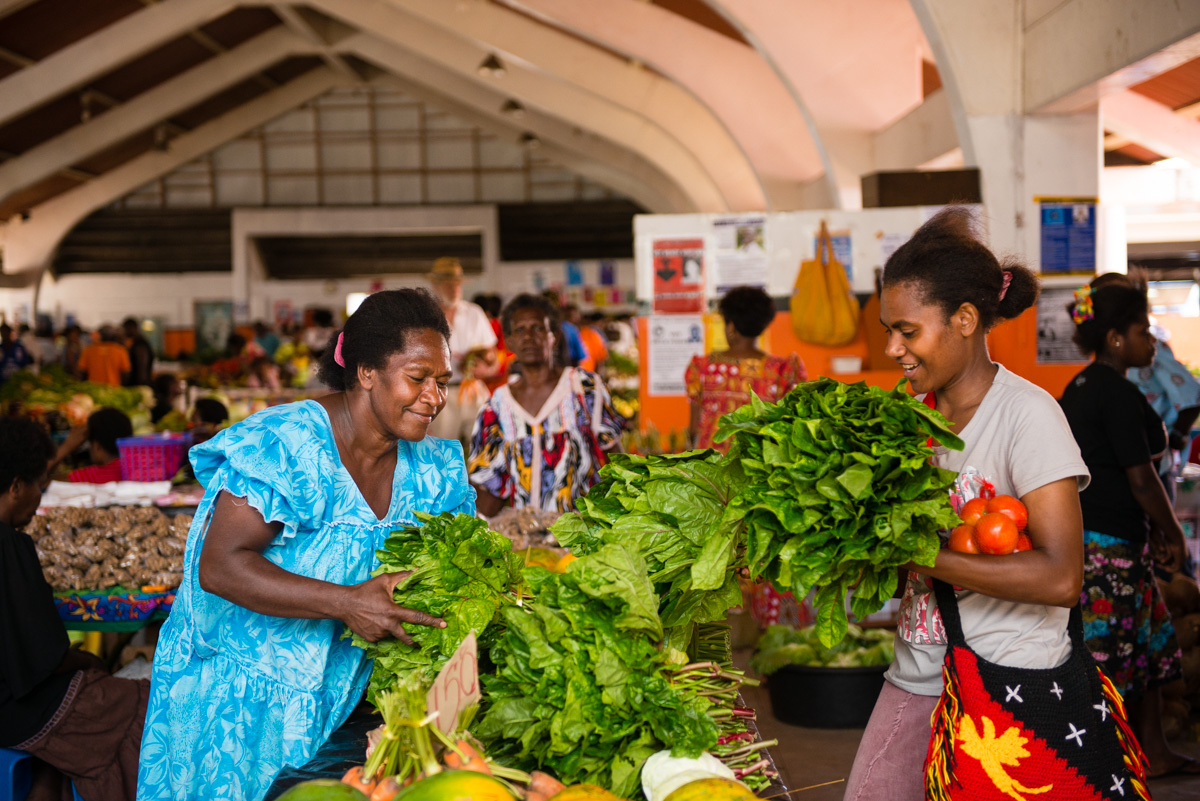Nature for water, nature for food, nature for peace
October 13, 2023

World Food Day 2023 is a time to reflect on some of the key trends affecting three foundational Sustainable Development Goals: no poverty, zero hunger and clean water for all.
World Food Day is a time to reflect on some of the key trends affecting three foundational goals of the Sustainable Development Goals: no poverty, zero hunger and clean water for all.
Held each year on 16 October, World Food Day commemorates the founding of the UN Food and Agriculture Organization. For 2023 the theme is ‘Water is life, water is food. Leave no one behind’.
The war in Ukraine is turning one of the most fertile countries on earth into one of the world’s largest minefields. We have seen in the last year a three-dimensional crisis unfold - food, energy, and finance — that has pummelled some of the world’s most vulnerable people, countries and economies. Food prices have gradually come down from their peak in March 2022, but they remain significantly higher than pre-pandemic levels: 45 percent higher than in 2019.
2023 will also likely be remembered as the year in which ‘climate chaos’ or ‘climate emergency’ replaced the phrase climate change. The weather has become both devastating and unpredictable, mostly driven by severe flooding and droughts.
This year in the United States alone, there were 23 billion-dollar weather disasters; last month saw severe flooding in ten countries in less than two weeks; and the headlines have whiplashed between record-breaking flooding in the Amazon one year, and record-breaking drought in the Amazon the next.
Just as conflict has a profound impact on poverty, food security and water security, so too does the climate emergency. It imperils not only our ability to achieve the Sustainable Development Goals, but our very existence, and creates systemic risk by disrupting regional and global hydrological cycles, threatening local, national and global food systems and increasing social and economic conflicts and break down. This risk is compounded further by the erosion – literally – of the world’s stock of natural capital of intact, healthy ecosystems.
Conflict and climate chaos have profound impacts on food and water security.
A new report released by the Somalian government suggests that there were 43,000 excess deaths in 2022 in Somalia due to the deepening drought exacerbated by climate change, compared with similar droughts in 2017 and 2018. By the end of 2022, the protracted food crisis in Somalia resulted in 3 million people being internally displaced, and at least 20,000 Somalis crossing into Kenya.
One of the most powerful solutions to mitigating the impacts of climate chaos is all around us – nature. Nature is our greatest ally when it comes to buffering humanity from the impacts of climate change, to bolstering our food and water security, and to safeguarding our health, safety and well-being.
'Nature is essential to our food, water, livelihoods and security and increasingly important for peaceful, prosperous societies.'
Nature for water, nature for food: Implement nature-based solutions
Nature is essential for securing water for drinking and agriculture. At local and regional levels, for example, wetlands help to mitigate floods and droughts, and forests help regulate and retain water over time at a continental scale across South America through the Amazon’s ‘flying rivers’.
Nature-based solutions for water security are practical actions that focus on protecting, restoring and sustainably managing the ecosystems that are critical for water provisioning, especially wetlands, forests, grasslands and mountains. Nature Based Solutions have also been instrumental in bringing peace in a drought-prone zone rife with resource conflicts and violent extremism. The Mali Elephant Project recipients of UNDP’s Equator Prize, is one such example that brings together various ethnic groups to effectively manage local resources and protect an internationally important population of 350 endangered African elephants.
There are hundreds of examples of how UNDP is helping governments work with nature to build resilient food systems and to achieve broader development outcomes. One example of UNDP’s work on promoting practical nature-based solutions for water is Viet Nam’s work on promoting payment mechanisms for natural ecosystem services, including watershed services. Another example is UNDP’s work with the Government of Colombia in developing a “map of hope” of essential life support areas, areas that were recently integrated into a regional water plan that protects water security for more than 14 million people in an area that has traditionally seen conflict.
As the UN Development Programme, we try to understand the risks to peace and stability brought on by the climate crisis where inter-communal tensions frequently boil over, fuelled by conflict over dwindling natural resources. Our work in Burkino Faso, Mali and Niger illustrates the solutions at hand when communities work together to develop safety nets of adaptation, collaboration, and innovation.

Food prices have gradually come down from their peak in March 2022, but they remain significantly higher than pre-pandemic levels.
Nature for life: Recognize the value of nature for human well-being
Nature is essential to our food, water, livelihoods and security, and increasingly important for peaceful, prosperous societies. Yet too often, markets and policies do not account for nature’s services, and corporations are not accountable for their destructive practices.
We must begin to celebrate and champion the role of nature as the very source of our wellbeing, and we must begin crafting a new narrative about nature and development. We must all become ‘nature for development champions.’
UNDP’s Nature Pledge is our commitment to provide accelerated and upscaled support to over 140 countries to reach their ambitious targets in the historic Global Biodiversity Framework.
For the fourth year in a row, UNDP is doing just that, by hosting a virtual celebration to recognize and amplify the role of nature in achieving the Sustainable Development Goals.
Join us, November 7-9 for this year’s Nature for Life Hub, to help us celebrate nature’s value - for food, for water, for life!

 Locations
Locations




